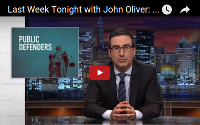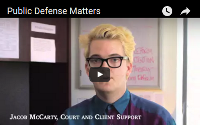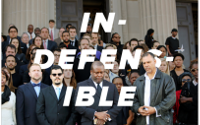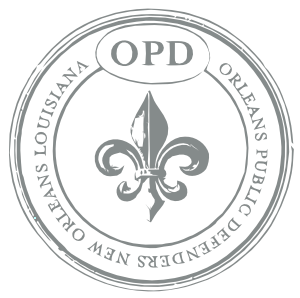The Advocate: Saints' Demario Davis: New Orleans not giving criminal defendants what they need.
As you walk up the steps of the Orleans Parish Criminal Courthouse, you see engraved above the entrance, “The impartial administration of justice is the foundation of liberty.” But the city’s persistent refusal to sufficiently fund the office responsible for protecting people’s liberty has prevented the impartial administration of justice in Orleans Parish from becoming a reality.
For years, the Orleans Public Defenders Office has moved from one budget crisis to another. In 2012, funding shortfalls forced OPD to lay off a third of its staff. Three years later, and severely short-staffed, OPD had to refuse cases and waitlist people because it could no longer provide each person with the constitutional right to effective assistance of counsel.
A year later, when the situation continued to deteriorate, and people found themselves without an attorney for months and months, often while in jail, the ACLU sued to force the city and state to properly fund public defense. And now OPD faces another crisis caused by inadequate funding that undermines any notion of fairness in the criminal justice system.
OPD handles 85% of all criminal cases in Orleans Parish — about 20,000 cases a year — but has around 60 attorneys. And it does so with one-quarter the budget of the District Attorney’s office. In 2019, the city will spend $258 million to arrest, prosecute, and incarcerate people, but just $1.8 million to provide these same people with their constitutionally guaranteed representation.
OPD does not want special treatment, only for its budget to reflect its burden — 85% of what the city provides the District Attorney’s office. According to Chief District Defender Derwyn Bunton, without additional funding, OPD will once more not have “enough funding to constitutionally, ethically, and professionally do the work demanded of us.”
When OPD is underfunded, it does not just harm those directly impacted — people charged with crimes — but our entire community suffers, especially in a city where a staggering one of 7 adults has a warrant out for an arrest. And when so few attorneys are forced to represent so many people, wrongful convictions become rampant. It is no coincidence that New Orleans both fails to properly fund OPD and that Orleans Parish has “the highest exoneration rate per capita of all major counties in the country,” according to one finding. By starving OPD of the resources it needs, the city is essentially guaranteeing innocent people will suffer in prison.
Take Landon Quinn, convicted in 2011 of murder. His two OPD attorneys had caseloads of more than 500 each — more than three times the recommended caseload for a public defender. Quinn’s conviction hinged on the testimony of just one eyewitness. Yet evidence to contradict that witness and support Quinn’s alibi sat uncovered in the case file. One attorney blamed the failure to learn of the exculpatory evidence on his “unmanageable caseload.” Quinn remains incarcerated, convicted of a murder he likely did not commit, and, as Radley Balko wrote in The Washington Post, “there will be more Landon Quinns” if funding for OPD does not improve.
If a fair and just criminal justice system is the goal, the mayor and City Council must, in the 2020 budget, finally provide OPD with the adequate funding it needs to be able to do its job. Otherwise, New Orleans will continue to fail in its pursuit of justice for all.
Read The Advocate article.
New Orleans Saints linebacker Demario Davis is a member of the Players Coalition Task Force, which is part of a nonprofit formed to address social justice and racial inequality.





